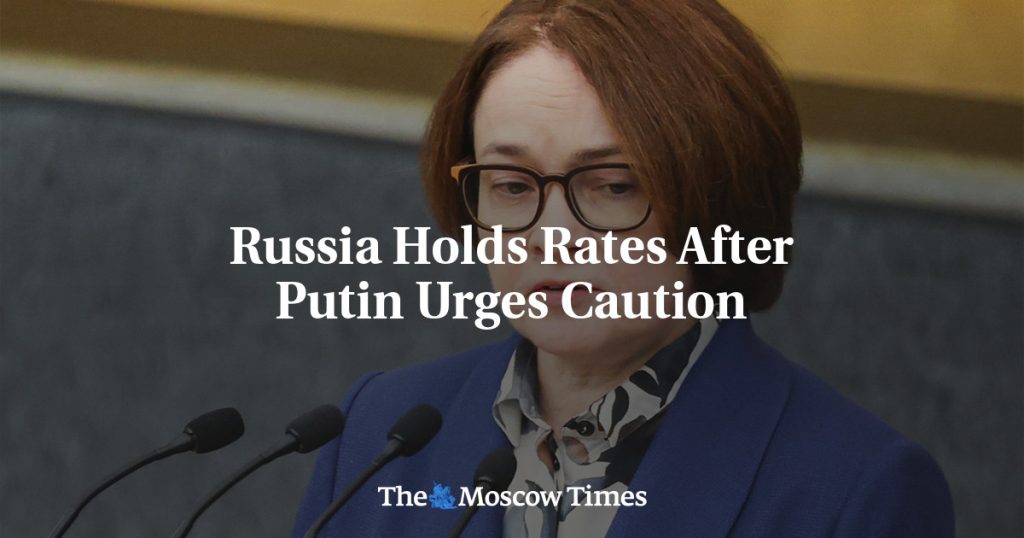The Central Bank of Russia decided to keep interest rates unchanged after President Vladimir Putin warned against reducing borrowing costs prematurely. Last year, the bank raised its key interest rate to 16% in response to a surge in inflation caused by Western sanctions that weakened the Russian currency. Inflation is currently at 7.8%, above the official 4.0% target, and the central bank believes it is still too early to start cutting rates. The bank stated that while inflationary pressures are gradually easing, they remain high and inflation is expected to return to the target more slowly than anticipated in February. Governor Elvira Nabiullina indicated that the current key rate may be maintained until the end of the year.
During a business forum, Putin emphasized the importance of caution in deciding when to reduce interest rates, citing ongoing inflation threats. Despite initial predictions of economic collapse due to Russia’s military actions in Ukraine, the country has managed to defy expectations. The IMF recently upgraded its forecast for Russia’s economic growth in 2024 to 3.2%, attributing the resilience to increased defense spending and the redirection of energy exports to countries like China and India. Putin warned of the dangers of unchecked inflation, pointing to neighboring countries like Turkey that are facing double-digit inflation rates due to poor policy decisions.
Nabiullina, a close economic ally of Putin, has been lauded for her role in navigating the Russian economy through challenging circumstances, including emergency rate hikes and capital controls in response to Western sanctions. The central bank’s decision to keep interest rates steady reflects a cautious approach to managing inflation and supporting economic stability. The bank acknowledges the need for higher rates to be in place for a longer period to address ongoing inflation pressures. Putin’s reference to the situation in neighboring countries serves as a reminder of the potential consequences of mismanaging inflation and economic policies.
Russia’s ability to maintain economic stability in the face of geopolitical challenges and sanctions underscores the resilience of its economy. The country’s strategy of increasing defense spending and diversifying energy exports has helped protect against economic downturns, although it has also led to higher domestic prices. As Russia continues to navigate complex economic conditions, the central bank’s decision-making process will be closely watched to ensure that inflation remains under control. The caution expressed by both Putin and the central bank reflects a recognition of the risks associated with premature interest rate cuts and the importance of maintaining stability in the face of ongoing economic challenges. In the coming months, the central bank will continue to monitor inflation levels and make informed decisions to support sustainable economic growth.


